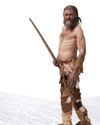Our world is all about information.People are constantly measuring and observing. We measure the height of snow or the size of sunspots. We track giraffe herds or subway riders. We count customers or concert tickets or cheeseburgers. Then we collect those facts into groups called data.

It’s a lot of data. Every day about 2.5 quintillion bytes of data are created. How much is that? Let’s say you buy the latest Star Wars movie on a Blu-ray (high-definition) disc. When the movie’s picture and sound files were stored on that disc, they became 25 gigabytes of data. So one Blu-ray movie equals 25,000,000,000 bytes. That already sounds like a lot of data. But you’d need 10 million Blu-ray movie discs to add up to 2.5 quintillion bytes. If you stacked those 10 million discs up, they’d be taller than four Eiffel towers.
And every day that truly towering amount of data is uploaded to the web. That’s great when you’re bored and browsing. But when you need to understand something quickly, too much data can be a problem. How do we get all those facts under control? Can we make data easier to understand?
LIKE HERDING GOATS
Imagine you’ve been given a flock of pygmy goats. Now you have to convince your parents to up your allowance to pay for goat food. You need to tell them all about your herd. How many breeds do you have? Which goat’s milk makes the best cheese? Do any do yoga? Just telling your parents a list of facts might put them to sleep. And you can’t show off scattered goats. You need to gather the herd into one pen. Then they’ll be easy to see.
Esta historia es de la edición November/December 2018 de Muse Science Magazine for Kids.
Comience su prueba gratuita de Magzter GOLD de 7 días para acceder a miles de historias premium seleccionadas y a más de 9,000 revistas y periódicos.
Ya eres suscriptor ? Conectar
Esta historia es de la edición November/December 2018 de Muse Science Magazine for Kids.
Comience su prueba gratuita de Magzter GOLD de 7 días para acceder a miles de historias premium seleccionadas y a más de 9,000 revistas y periódicos.
Ya eres suscriptor? Conectar

A 12-Year-Old Girl's Election Sticker Is a Winner
VOTING IS A FUNDAMENTAL FREEDOM FOR AMERICANS, A MEANS OF DOING ONE'S CIVIC DUTY AND A WAY AN INDIVIDUAL CAN EXPRESS THEIR VOICE. In 1971, the United States lowered its voting age to 18. But that doesn't mean kids and teens under 18 can't participate in elections in various ways.

If everything the human brain does is basically sets of electrical impulses, how exactly does that translate into a state of mind?
You're not the only one asking this question. Every neuroscientist in the world is wondering the exact same thing, says Zach Mainen

EARTH'S TINIEST BUILDERS
THE HIDDEN WORLD OF MICROBES IN THE EARTH'S CRUST

MUMMIES SPEAK
ABOUT MICROBES, MIGRATION, AND MORE

GOING WITH YOUR GUT
HOW DO MICROBES AFFECT OUR HEALTH? LET'S COUNT THE WAYS...

BUG Detective
A burglar sneaks into a house on a quiet street in New York City. He walks through the house, touching countertops and door handles. Finally, he steals a single card from a full deck. Then he leaves.

Little Creatures Among Us THE MANY MICROBES IN OUR DAILY LIVES
When you think you're alone, you're actually not. In the ground, the air, your room, and even your body are Strillions and trillions of creatures so tiny you can't see them.

A Mars Rock Found With Leopard Spots Could Be a Sign of Ancient Life
IN JULY, NASA'S PERSEVERANCE ROVER CAME ACROSS A SPOTTED ROCK IN WHAT WAS ONCE A RIVERBED IN THE JEZERO CRATER ON MARS.

Para Athlete Uses Exoskeleton Suit to Carry the Olympic Torch
In July, a 36-year-old French tennis para athlete, Kevin Piette, got a chance to participate in this summer’s Olympic torch relay without using a wheelchair.

Ancient Egyptians May Have Used a Water System to Lift Stones to Build Pyramid
HOW ANCIENT EGYPTIANS BUILT THE MASSIVE PYRAMIDS IN EGYPT MORE THAN 4,000 YEARS AGO HAS LONG BEEN A TOPIC OF WONDER AND DEBATE.